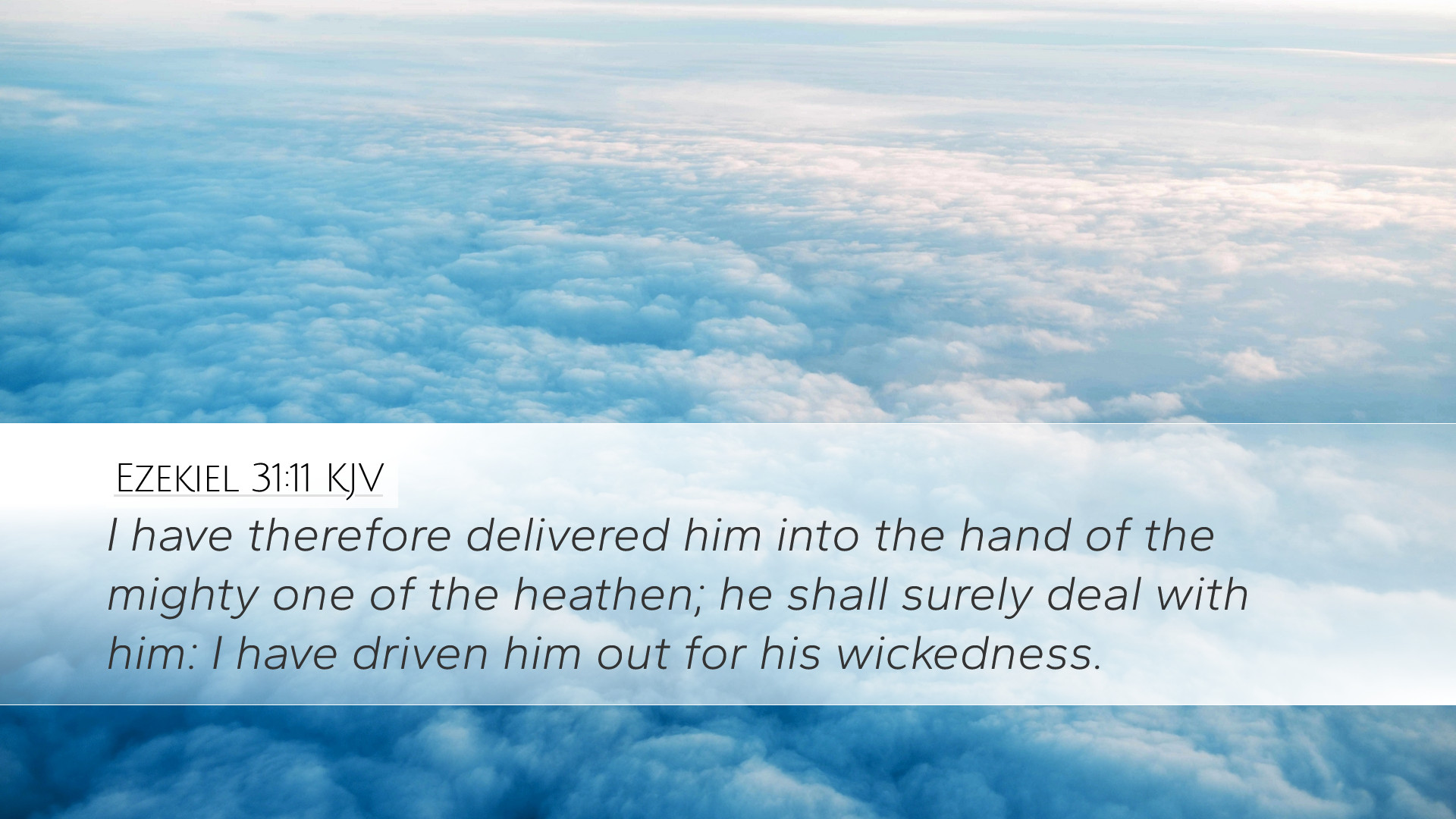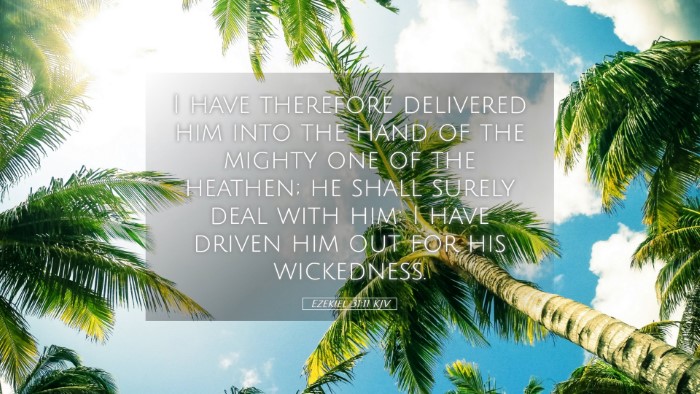Ezekiel 31:11 Commentary
Verse: "I have delivered him into the hand of the mighty one of the nations; he shall surely deal with him: I have driven him out for his wickedness."
Introduction
The verse of Ezekiel 31:11 captures a profound moment in Ezekiel’s prophetic message. This passage serves as an illustration of divine sovereignty and the consequences of pride and wickedness, particularly in relation to the judgment that befalls nations. Various public domain commentaries provide insight into the historical background, theological significance, and practical implications of this verse.
Contextual Analysis
Ezekiel's prophecy is set against the backdrop of Israel's exile and the impending judgment upon Egypt and other nations, including Assyria, which is symbolized in this passage. The imagery used in Ezekiel chapter 31 focuses on the grandeur of the Assyrian empire, likened to a majestic cedar tree, which ultimately faces divine judgment.
Matthew Henry's Insight
Matthew Henry emphasizes that the grandeur of Assyria, while impressive, does not escape God's judgment. He notes that God "delivers" nations into the hands of powerful ones as a means of executing His will. Henry points out that the might of nations is subject to the authority of God, who uses even the most powerful to bring about the downfall of the proud.
Albert Barnes' Perspective
Albert Barnes elaborates on the implications of God delivering "him into the hand of the mighty one of the nations." He explains this phrase as depicting God's ultimate control over the affairs of nations. Barnes suggests that the word "mighty" relates to the most powerful rulers whom God raises or lowers at His pleasure. Thus, this verse warns that no matter how majestic or powerful a nation may be, it remains under God’s providential care and judgment.
Adam Clarke's Commentary
Adam Clarke reinforces the notion of divine judgment in his commentary. He asserts that the Assyrian empire, despite its previous prominence, had sown the seeds of wickedness. Clarke draws attention to how God’s judgment is not an arbitrary act but a response to the moral failings of nations. The idea of being "driven out" signifies a removal from divine favor, serving as an admonition regarding the consequences of turning away from righteousness.
Theological Reflections
Through the lens of these commentaries, Ezekiel 31:11 reflects several core theological themes:
- Divine Sovereignty: The overarching theme remains that God is sovereign over nations. His will prevails and He orchestrates the rise and fall of empires according to His purpose.
- Moral Accountability: Nations, just like individuals, are accountable for their actions before God. The degradation of morals leads to inevitable consequences.
- Judgment as Restoration: The judgment of God is not without purpose. It serves to refine and sometimes restore nations back to a place of humility and recognition of God’s authority.
Practical Application
For pastors, students, theologians, and biblical scholars, the message contained in Ezekiel 31:11 carries several applications:
- Encouragement for Leaders: Leaders should acknowledge their authority comes from God and that they are accountable for their actions. This should foster humility in governance.
- Call to Righteousness: Individuals and communities must seek righteousness in their lives to avoid the pitfalls of pride and wickedness.
- Reflection on National Identity: This passage invites reflection on the moral and ethical compass of nations today and calls for a return to principles that honor God.
Conclusion
Ezekiel 31:11 is a stark reminder of God's control over human history and the moral imperatives facing nations. The insights from Matthew Henry, Albert Barnes, and Adam Clarke together present a rich tapestry of thought, encouraging a God-honoring perspective amidst the complexities of power and judgment. As we study this passage, may we be reminded that our ultimate hope lies not in our own strength or the might of nations, but in the unwavering sovereignty and righteousness of God.


